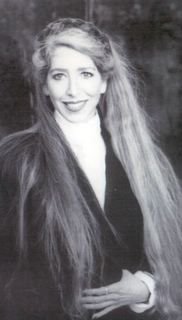What is a Poet?
But I think that if we look into the lives of poets we shall find there was a time of withdrawal from the world, of silence and meditation.
I believe that all true poets feel a sense of dedication, and that this comes to them in solitude and silence. The silence of which Pascal spoke, the silence of infinite spaces, is terrifying, and most avoid it, but poetry feeds on silence. To apprehend the silence of the universe is to wish to break it, to speak to those who are in the same boat with ourselves.
The measure of a man, said Ortega, is the amount of solitude he can stand, and great poets are those who have listened greatly. The task of the poet is to put into words the message that formed itself out of silence.
In poetry-writing workshops all over the country, writers, having been told that they must describe things accurately and be sincere-- and if you ask who said so, they might say Williams-- are writing these dreary little exercises in futility... Confessional writing is a dead end... I do not see how this can be felt unless one has the vision of a community.
For a hundred years lyric poetry has been placed on a pedestal. Can it be only coincidence that this has been accompanied by a general decline of interest in poetry? It is the nature of the lyric to express a subjective mood and ignore the outer reality. It is to be expected that such writing will interest very few.
The wish for "pure poetry" has brought about writing that is as far from meaning as one can get without lapsing into nonsense, and frequently it crosses the line... Stevens poetry is not philosophy and his philosophy is not poetry.
With us, however, the wish to be pure has not expressed itself as music-- more commonly it has led to imagistic writing, poems that consist only of images.
If poetry is to matter we must put in our poems those elements that have been excluded as impure. This means breaking with the standards set by the academy, by those who have made emptiness a virtue-- who have elevated Stevens above Frost...
No sooner does an American set up as a poet then he begins to suffer from what a friend of Whitman's called the "beauty disease." He thinks that poetry has to be written in a special language and that subjects have to be far-fetched. This brings on the inanity of which I have given examples, a kind of anorexia nervosa, so that poetry becomes thin to the point of disappearing. There is no cure but immersion in the common life and language, as Wordsworth said, really used by men.
I have spoken of the poet's training in solitude and silence. What he discovers there, the messages the wind delivers to him, are the themes of his writing.
Much to think on in reading the entire essay, although some of it seemed contradictory. It seemed that at one point Simpson claims poets think too much of themselves, and at another that they are not bothered enough by themselves (well, perhaps those are two different things, after all.) I tend to agree that confessional poetry is overdone. Just as is any other kind of poetry. I prefer a poet who can write in various forms in various moods than in a constant monotonal, defensible-in-theory-but-unengaging-to-the-reader kind of way. But readers like to typecast their poets as much as viewers like to typecast their actors. And so, if you play to poety readings, you tend to be more accessible while fronting as witty, and if you play to academia, you tend to be more inscrutable while fronting as deep.



